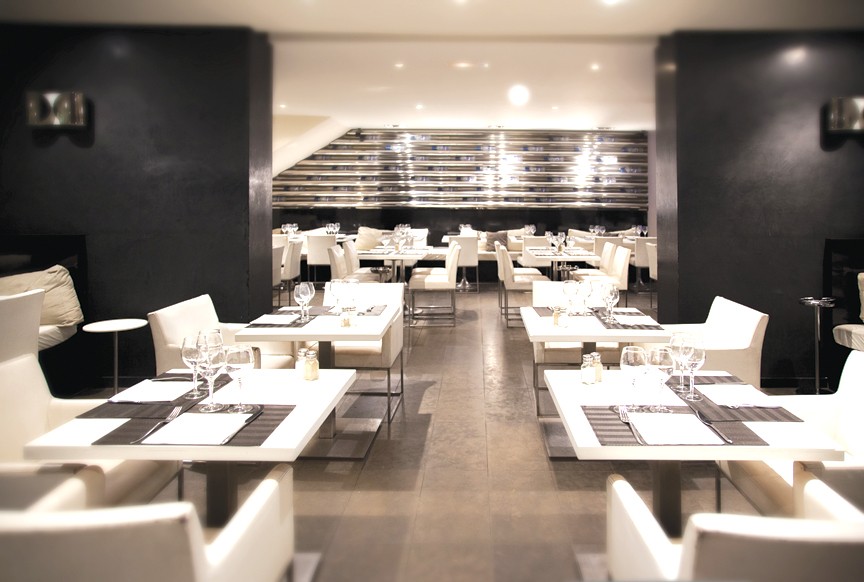It had all the makings of the perfect Saturday night in the restaurant world. Ushabu, open for just over a month, was riding high from positive reviews. Though tiny by modern standards, the 25-seat Asian bistro was booked solid from 4:30 through 9:30 p.m., at which point tables would remain largely filled through closing time thanks to walk-in customers.
But perfect quickly turned to perfectly disastrous for general manager Michael Flaherty as parties who had reserved tables over the phone or through an online reservation system failed to show up. Five separate parties totaling more than 20 guests failed to honor their reservations without so much as a call, text or email. When all was said and done, Ushabu did only a fraction of the business it would have. Worse, all the people who wanted to dine there and were turned away couldn't.
"I know that sometimes people don't understand the impact that this can have on other people, especially in a smaller place like ours," Flaherty explains. "I think this is something we can educate people about."
Flaherty says that remedying the situation isn't as simple as filling those no-show tables with walk-ins, even as walk-ins continue walking in the door.
"By the time you've allowed for them running late, tried contacting them, and made the decision to cancel the reservation, it's maybe 20 minutes after the reservation time," he explains. "That table is booked again an hour and half later so you can't seat it because you don't want to delay that party. So for me, in this space, I have no choice but to leave the table open."
Decisions made by neglectful or forgetful diners cast a wide shadow, one that goes far deeper than simply aggravating a dining room manager whose only goal is to make guests happy. Food is often prepped based on the number of reservations, additional staffers are called in, and diners who call to book earlier in the day or week are rebuffed.
"The restaurant doesn't make money on empty tables, the staff isn't making money, and I'm not able to accommodate guests who simply walked in," adds a frustrated Eric Williams of Momocho and El Carnicero. "I love this business, but there are so many things that have to happen perfectly every single day to be consistently profitable."
Even parties that do show up for their reservations can negatively affect the fragile ecosystem of a busy restaurant.
"Being a relatively small restaurant, we don't have a lot of options for where we can accommodate larger parties; we have to push tables together and start playing Tetris," notes Ryan Wilkins, GM of Flying Fig. "When people show up with numbers higher or lower than they booked, it has a ripple effect that impacts our business and the rest of our guests."
Tables that were staged and set for a large party that ends up smaller than originally booked could have been occupied by walk-ins who ultimately were turned away. Wilkins estimates that on a busy brunch or holiday, that can add up to 10-percent loss.
Larger restaurants, while still affected by no-shows, can more easily roll with the punches. All three locations of Rosewood Grill, part of the Hospitality Restaurants group, recently switched over from call-ahead seating to reservations at the request of its guests.
"With bigger restaurants, we have the benefit where if we have a no-show or two, we can generally fill that back in with a walk-in," explains Christopher Oppewall, managing partner. "When you do 200 in a night, the difference is negligible. Whereas in a much smaller restaurant, it can be as much as half your dining room."
Of course, there are ways to maximize your space and bottom line while keeping guests happy. One of those is to do everything within one's power to eliminate or reduce the number of no-shows in the first place.
"That starts with training," explains Seth Bromberg, owner of the reservation-dependent Playhouse Square eatery District. "You have to make sure you have the right phone number. Have the hostess repeat the number back to the diner."
Calling to confirm (and reconfirm) should be standard operating procedure, he adds, but requiring a credit card should not.
"It's really a slippery slope with regards to taking credit cards with reservations. Privacy and security have taken over our world – let alone the awkwardness of the request. People are concerned about giving out their credit cards over the phone."
As for the suggestion that Ushabu and places like it simply abandon reservations and adopt a first come, first served system, Flaherty responds.
"This isn't the lower east side of Manhattan with constant foot traffic," he asserts. "When people try and come to eat at your place and they get turned away two or three times, eventually they'll be like, 'Screw that place.'"
Long story short: call to cancel.


